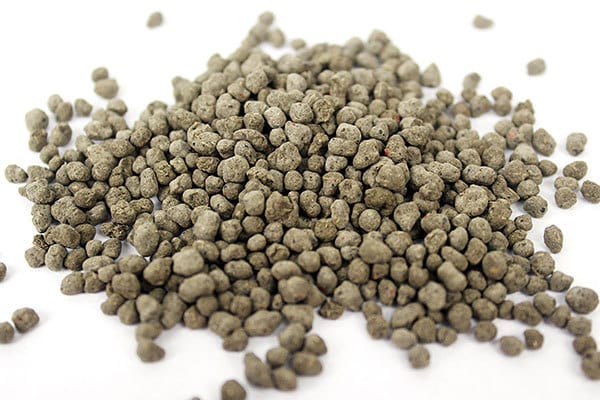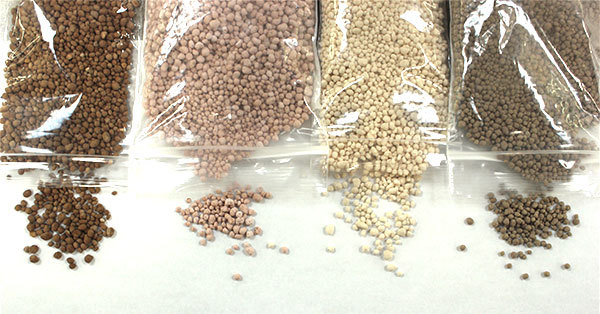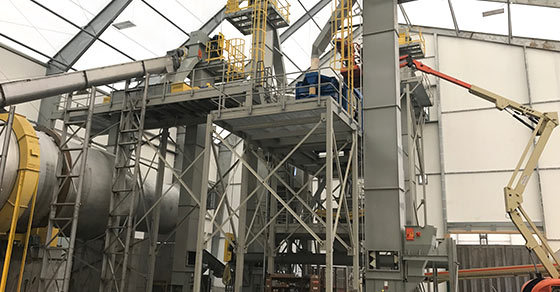In October, The Fertilizer Institute (TFI) announced a commitment by the US fertilizer industry to meet a goal of 70 million acres under the management of 4R Nutrient Stewardship by 2030.
With granulation playing an important part in achieving sustainable nutrient management goals, the pledge could lead to a rise in demand for fertilizer granulation equipment and development work.
US Fertilizer Industry Commits to 4Rs
The Fertilizer Institute has long been recognized as the voice of the industry, advocating on topics such as legislation, industry initiatives, environmental stewardship, and more.
TFI’s goal to reach 70 million acres by 2030 exemplifies the industry’s continued commitment to maximizing crop yields while lowering environmental impact, and helping growers to reduce their input costs – all of which will be essential if we are to feed the world’s growing population on less arable land without doing harm to the environment.
TFI president and CEO, Corey Rosenbusch, commented on the pledge in a press release:
“The sustainable use of fertilizer is not only a priority for the fertilizer industry, but for millions of farmers across the nation,” said Rosenbusch. “A key goal for the industry is a commitment to a healthy environment, and setting this goal to improved nutrient stewardship is an important step in meeting that goal.”
Acreage under 4R Nutrient Stewardship follows the concept that by applying the right fertilizer in the right place at the right time, and in the right amount, crop nutrition is optimized for maximum productivity and minimal losses. 4R nutrient stewardship continues to be recognized as a best practice in achieving productive, efficient, and sustainable crop production.
Why This Could Push Demand for Fertilizer Granulation Equipment & Development
Though not always recognized as such, fertilizer granulation equipment and systems are important tools in sustainable nutrient management for several reasons. Granulation allows for:
Production of Specialty Fertilizers
Specialty fertilizers are a fast-growing market; as the use of 4R principles becomes more widespread, it has become increasingly common to tailor nutrient sources and blends to a given region, type of crop, or even specific application.
This has led to a rise in specialty fertilizer production, and the granulation process is an ideal approach in this effort. The granulation process is flexible in that multiple nutrients and beneficial additives are easily included in the process, giving fertilizer producers precise control over their nutrient formulations, as well as physical specifications. It can also help to transform difficult-to-handle nutrient sources into a more marketable granular product, such as in the case of manure.

Granular manure-based fertilizer
Further, a granular product is more easily coated. Coating has become increasingly popular as a way to turn a standard fertilizer into a specialty product by incorporating beneficial additives or additional nutrients in the form of a coating.
Granular Fertilizer = Minimized Dust
Use of a granular product also largely eliminates dust. This means product does not become windblown upon application, which in turn prevents unintended application on surrounding areas that might otherwise result in runoff.
On top of this, a granular product is also more flowable and more easily metered compared to powdered fertilizer products, which results in a more accurate application.
Production of Complex Fertilizers
Granulation also allows for the production of complex fertilizers. A complex fertilizer is a type of compound fertilizer that incorporates the entire nutrient formulation into each and every granule. This is opposed to a blend, in which different nutrient granules are mixed together to create the desired formulation as an entire batch.

Compound fertilizer blend vs. complex fertilizer
The use of complex fertilizers prevents nutrient segregation, which can occur at any point during the life cycle of a fertilizer when using a blended product. The segregation of nutrients leads to inaccurate application.
Controlled-Release & Enhanced-Efficiency Fertilizer Granulation
The flexibility of the granulation process also allows for production of controlled-release and enhanced-efficiency fertilizers, both of which are critical in sustainable nutrient management efforts.
Further, as with creating a specialty product, a granular fertilizer also opens the door to coating an existing product in order to create a controlled-release or enhanced-efficiency fertilizer.
Developing New Granulation Processes and Products
The 4R commitment is also likely to push demand for testing and development work around granulation processes in an effort to produce more specialized products, and products from novel nutrient sources, a trend the FEECO Innovation Center has seen first-hand over the past several years.
After assisting facilities all over the world to convert their process to the “new” method of granulation in the 50s and 60s, FEECO became one of the leading authorities on the granulation process. This in turn led to our testing facility, the FEECO Innovation Center, becoming the epicenter of expertise around testing and developing fertilizer granulation processes.
The Innovation Center works with the industry’s leading fertilizer producers to engineer custom granulation and coating processes around their product goals. In addition to meeting formulation specifications, this also means meeting essential fertilizer granule specifications, such as:
- Size Guide Number/SGN
- Surface-Area-to-Volume Ratio
- Bulk Density
- Uniformity Index/UI
- Granulometric Spread Index/GSI
- Crush Strength
- Attrition
- Hygroscopicity
- Solubility
- And more…
A variety of fertilizer granulation equipment types are available for testing, allowing for a single piece of equipment to be trailed, or a continuous granulation loop with drying and recycle. Along with a variety of data collection, analytical capabilities, and support equipment, the Innovation Center boasts a pilot-scale rotary granulator/coating drum, batch- and pilot-scale disc pelletizers, batch- and pilot-scale pin mixers, a continuous rotary dryer, and more.

Various samples of potassium sulfate (SOP) produced during testing in the FEECO Innovation Center
The development work conducted in the Innovation Center then provides FEECO engineers with the data they need to design granulation equipment and production lines tailored to the specific process and product goals of the operation.
In today’s ever-evolving market, the test work conducted in The Innovation Center has never been more important.
Conclusion
The granulation process gives producers many opportunities to create the products demanded by the changing agriculture industry, through the production of specialty products, coating capabilities, minimized dust, and so much more. Thanks to these benefits, the US fertilizer industry’s commitment to meeting 70 million acres under 4R nutrient stewardship could help to usher in additional demand for granulation equipment, systems, and development work.
FEECO has long been the industry’s preferred provider of custom granulation equipment, complete production lines, and process development testing. For more information on our capabilities, contact us today!



